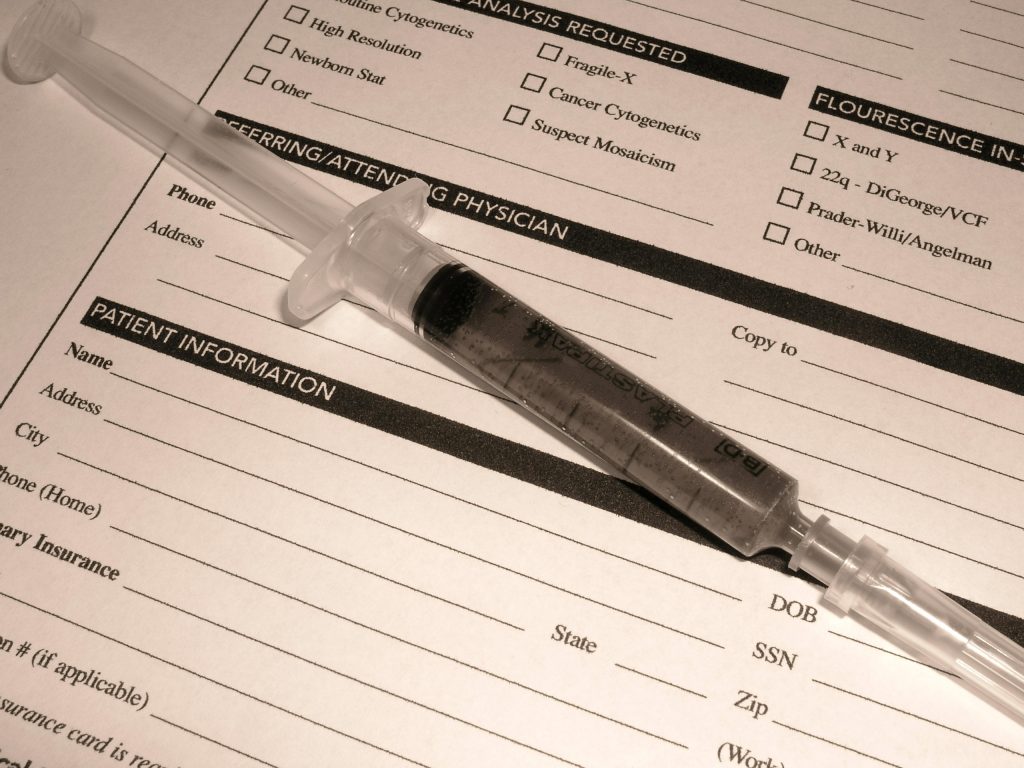 When you are injured or ill and need treatment, you turn to a hospital and put your trust in the doctors and healthcare providers at that hospital. Normally, healthcare providers are diligent and provide top-notch care, however, occasionally a hospital fails to live up to the trust given to them by the patient. When this occurs, the Louisiana Medical Malpractice Act (“MMA”) protects the patient. Nonetheless, there are cases in which it is disputed whether or not the incident falls under the MMA – for example is the failure to clean surgical instruments an incident of malpractice? The Supreme Court of Louisiana recently decided such a case from the Parish of East Baton Rouge and upheld that the MMA is a wide umbrella that covers various types of claims.
When you are injured or ill and need treatment, you turn to a hospital and put your trust in the doctors and healthcare providers at that hospital. Normally, healthcare providers are diligent and provide top-notch care, however, occasionally a hospital fails to live up to the trust given to them by the patient. When this occurs, the Louisiana Medical Malpractice Act (“MMA”) protects the patient. Nonetheless, there are cases in which it is disputed whether or not the incident falls under the MMA – for example is the failure to clean surgical instruments an incident of malpractice? The Supreme Court of Louisiana recently decided such a case from the Parish of East Baton Rouge and upheld that the MMA is a wide umbrella that covers various types of claims.
On April 14, 2014, Richard Dupuy went to the Spine Hospital of Louisiana for a spine surgery. Following the operation, Dupuy developed a post-operative infection called osteomyelitis caused by mycobacterium fortuitum. Dupuy and his wife allege that he received this infection because the hospital failed to sterilize or clean surgical instruments properly and thoroughly. As a result, Dupuy and his wife sued the hospital for Richard Dupuy’s medical expenses, pain and suffering, mental anguish, loss of earnings capacity, disability, and loss of enjoyment of life. They also sued the hospital seeking damages for Mrs. Dupuy for she maintains a loss of society, support, and companionship.
The Hospital responded by filing an exception of prematurity (meaning the case had not evolved enough to need the court to step in) and asserting that the Dupuy’s have incorrectly gone about the situation. In support of this defense the hospital cites La. R.S. 40:1231.8 that states how Dupuy’s claims must first be presented to a medical review panel. Moreover, the hospital had the infectious disease specialist that treated Mr. Dupuy testify that she was unable to pinpoint specifically what caused the infection and she maintains there could have been many causes for the infection.
 Louisiana Personal Injury Lawyer Blog
Louisiana Personal Injury Lawyer Blog


 The emergency room is supposed to provide lifesaving care, quickly, to those who need it
The emergency room is supposed to provide lifesaving care, quickly, to those who need it 
 Medical malpractice lawsuits are filed for a wide range of injuries and even death. When a patient finds himself in a scenario where he believes a medical professional could have done more to prevent his injuries or cure his condition, he may decide to go through with a lawsuit. Medical malpractice lawsuits often require expert witnesses to succeed and proving damages in these cases where the patient enters a medical facility sick or injured can be a tough case to win. So, can you lose your medical malpractice case if you do not have enough evidence?
Medical malpractice lawsuits are filed for a wide range of injuries and even death. When a patient finds himself in a scenario where he believes a medical professional could have done more to prevent his injuries or cure his condition, he may decide to go through with a lawsuit. Medical malpractice lawsuits often require expert witnesses to succeed and proving damages in these cases where the patient enters a medical facility sick or injured can be a tough case to win. So, can you lose your medical malpractice case if you do not have enough evidence? Having surgery is always a stressful situation. Nobody wants to leave the hospital only to return a short time later from complications due to the first surgery. This is unfortunately what happened to Mr. James Nelson, who sued his surgeon, Dr. F, in East Baton Rouge Parish. So, what happens when you develop a new medical condition after your surgery?
Having surgery is always a stressful situation. Nobody wants to leave the hospital only to return a short time later from complications due to the first surgery. This is unfortunately what happened to Mr. James Nelson, who sued his surgeon, Dr. F, in East Baton Rouge Parish. So, what happens when you develop a new medical condition after your surgery? In the aftermath of suffering injuries from medical malpractice, filing a suit might not be at the top of your list. However, in order to maximize your chance of recovery, it is imperative that you timely file your claim without delay. So what happens when you do not file a suit quickly enough?
In the aftermath of suffering injuries from medical malpractice, filing a suit might not be at the top of your list. However, in order to maximize your chance of recovery, it is imperative that you timely file your claim without delay. So what happens when you do not file a suit quickly enough? The birth of a child is something many soon-to-be parents look forward to with both excitement and nervousness. Concern for the health and safety of both mother and child are common, and often, unnecessary. Sadly, this is not always true. In the case of one Terrebonne Parish family, the arrival of a baby girl was accompanied by an unfortunate medical mistake. The family’s medical malpractice claim raised important distinctions in assessing and apportioning damages as it moved into the Louisiana First Circuit Court of Appeal.
The birth of a child is something many soon-to-be parents look forward to with both excitement and nervousness. Concern for the health and safety of both mother and child are common, and often, unnecessary. Sadly, this is not always true. In the case of one Terrebonne Parish family, the arrival of a baby girl was accompanied by an unfortunate medical mistake. The family’s medical malpractice claim raised important distinctions in assessing and apportioning damages as it moved into the Louisiana First Circuit Court of Appeal.  When someone decides to have surgery, they do not typically anticipate a lawsuit arising out of that surgery. Typically, a headache is not a common side effect of getting a new joint implanted into a toe, but when issues of joinder and diversity jurisdiction complicate a lawsuit, a headache is what the patient gets. Unfortunately, that’s exactly what happened to a patient in eastern Louisiana. Kale Flagg had an unsuccessful toe-joint replacement surgery and filed a lawsuit in state court asserting medical malpractice claims against Dr. Denise Elliot and a product defect claim against both Stryker Corp. and Memometal Inc. USA.
When someone decides to have surgery, they do not typically anticipate a lawsuit arising out of that surgery. Typically, a headache is not a common side effect of getting a new joint implanted into a toe, but when issues of joinder and diversity jurisdiction complicate a lawsuit, a headache is what the patient gets. Unfortunately, that’s exactly what happened to a patient in eastern Louisiana. Kale Flagg had an unsuccessful toe-joint replacement surgery and filed a lawsuit in state court asserting medical malpractice claims against Dr. Denise Elliot and a product defect claim against both Stryker Corp. and Memometal Inc. USA.  Deadlines matter. They matter in all areas of life, but in the legal world, missing a deadline can determine whether legal action will move forward or not. With every cause of action, there are time frames for filing claims and appeals and oftentimes—even in situations where recovery seems necessary or deserved—courts will dismiss cases filed outside these time frames. In a lawsuit against Rapides Regional Medical Center (Rapides Regional), Mrs. Susanna Duckering learned this lesson the hard way.
Deadlines matter. They matter in all areas of life, but in the legal world, missing a deadline can determine whether legal action will move forward or not. With every cause of action, there are time frames for filing claims and appeals and oftentimes—even in situations where recovery seems necessary or deserved—courts will dismiss cases filed outside these time frames. In a lawsuit against Rapides Regional Medical Center (Rapides Regional), Mrs. Susanna Duckering learned this lesson the hard way. Every medical professional has a standard of care he or she must adhere to. No one wants to deal with the failure to meet this standard of care, but oftentimes, life puts us in unfortunate situations. When we suffer injuries—or worse—at the hands of those who are supposed to treat, heal, or diagnose us, medical malpractice can help provide compensation. In a recent case appealed to the Court of Appeal for the Third Circuit of Louisiana, a medical malpractice claim was made against the Louisiana State University Health Systems Moss Regional Medical Center (“Moss Regional”).
Every medical professional has a standard of care he or she must adhere to. No one wants to deal with the failure to meet this standard of care, but oftentimes, life puts us in unfortunate situations. When we suffer injuries—or worse—at the hands of those who are supposed to treat, heal, or diagnose us, medical malpractice can help provide compensation. In a recent case appealed to the Court of Appeal for the Third Circuit of Louisiana, a medical malpractice claim was made against the Louisiana State University Health Systems Moss Regional Medical Center (“Moss Regional”).